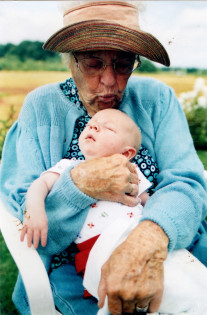
I am in a gym and surrounded by sweat, groans, and some tears. I, however, am not sweating at all. In fact, although my heart rate picks up every hour or so for about 6 minutes, I am still in my street clothes.
This is a high school gym and I am attending another Saturday high school wrestling tournament. I will be here from 8 am until maybe 6 pm to cheer on my 16 year old son. Today the hour long drive home is without snow so it is likely to only take an hour.
The house has not been cleaned yet and I am staring down 3 or 4 loads of laundry when I get home. Lucky for me my husband likes to cook.
Throughout the day my phone has been relatively quiet. A few work related phone calls. No calls from my dad. A call from my dad means I pick up immediately, saying a prayer that all is fine with my mother.
We have had 7 emergency room visits, each one lasting a minimum of 6 hours. We have had 6 hospital admissions, lasting from 3 days to 2 weeks. And 3 stays in rehabilitation ranging from a stay of 2 weeks to 7 weeks. This is all in the past 9 months.
To put it in perspective, July, August, and September were hospital free. 2/3 of the past 9 months have involved the hospital. All but one related to my mother. My dad can claim one week-long stay due to pneumonia, during which my sisters and I took turns sleeping at their apartment in assisted living as my mother cannot be left there alone.
This is the life of someone who is a daughter or a son of an aging parent, a mother, and who is still employed.
We run here and there. We cheer and film and buy more waters and Gatorade. We consider our calendars as we determine how we can make mom’s next doctor’s appointment, as all of the information shared during that visit can be overwhelming for all involved and our presence not only gives comfort but clarity.
According to a new Pew Research Center survey “Nearly four in ten U.S. adults (39%) are caring for an adult or child with significant health issues.” That is up from 30% of U.S. adults in 2010. Caring for a loved one is an activity that cuts across most demographic groups, but is especially prevalent among adults ages 30 to 64, a group traditionally still in the workforce.” http://www.pewinternet.org/Reports/2013/Family-Caregivers.aspx
If you are a member of this club of family caregivers, the “sandwich generation,” it is likely you know exactly what I am talking about and maybe, like me, you wouldn’t have it any other way.
The good news is that if we can figure out how to keep all the balls in the air, juggling without a miss that results in any big mess, if we can realize how to not only enjoy but love this role of family caregiver, we could actually be benefiting from this frenetic, crazy life.
In a study from the American Journal of Epidemiology, we may actually be happier and healthier than our non-caregiver friends and family. “Family caregivers were 18 percent less likely to die than non-caregivers over six years, the researchers found.” http://aje.oxfordjournals.org/content/early/2013/10/02/aje.kwt225.abstract?sid=194127f7-13f4-4190-b3b1-ff04f67f0afc
There are plenty of studies that show the negative effects of caregiver stress, caregiver fatigue and caregiver burnout, all terms used today to describe the downside of this juggling act. So, how do we keep the balls in the air and keep a smile on our face?
There are a number of resources and all start with asking for help. Here is a good start as a resource guide. http://www.helpguide.org/elder/caregiver_stress_burnout.htm
Remember that you will likely need help. Ask for it where and when you can. You may never want someone else to take your mom to the doctor but you might love someone who can clean her tub. Or pick up her groceries and cook a meal. Or just keep her company while you attend the all-day wrestling tournament. The key to asking for help is to be specific about what you need so that friends or those you hire to help feel more able to give the right assistance.
Hiring help may be more affordable that you realize, especially when weighed against the impact to your job and to your time with your children. Even 2 hours per week can take just enough of the load off and you begin to feel yourself breathing again and to be grateful for the opportunity to care for those you love and who have loved you.


Great read! And all of it so true. Me being the furthest away it is difficult to manage my family needs , work needs and demands of others. Thank you for these blogs. Others truly don’t know the time, worry and stress the sandwich generation goes through. But on another note I am truly grateful that I can still spend time with mom and dad.
I agree. The time spent is an opportunity to know them even more than we have and to focus on our parents and their stories instead of on us. The stories are quickly lost with the passing of each generation and so important to share.
This is a wonderful article. Strait from the heart. Thank you for sharing. Rob and I are feeling it on both sides. As a nurse and daughter with a full time job and a family of her own sometimes it’s hard to juggle. But we do because we care. It’s nice to be reminded we are not alone. Sending love and prayers. Judy, You are making a difference. Thank you.
Nancy, Sending prayers to you and Rob. I know that you are making a difference for your family on all fronts. God Bless! Judy